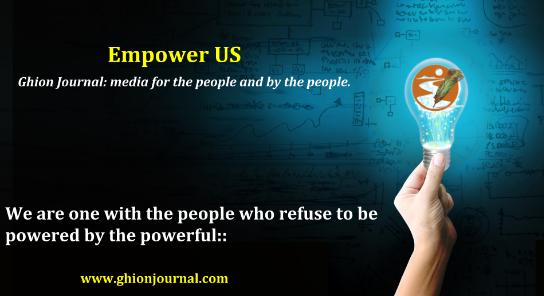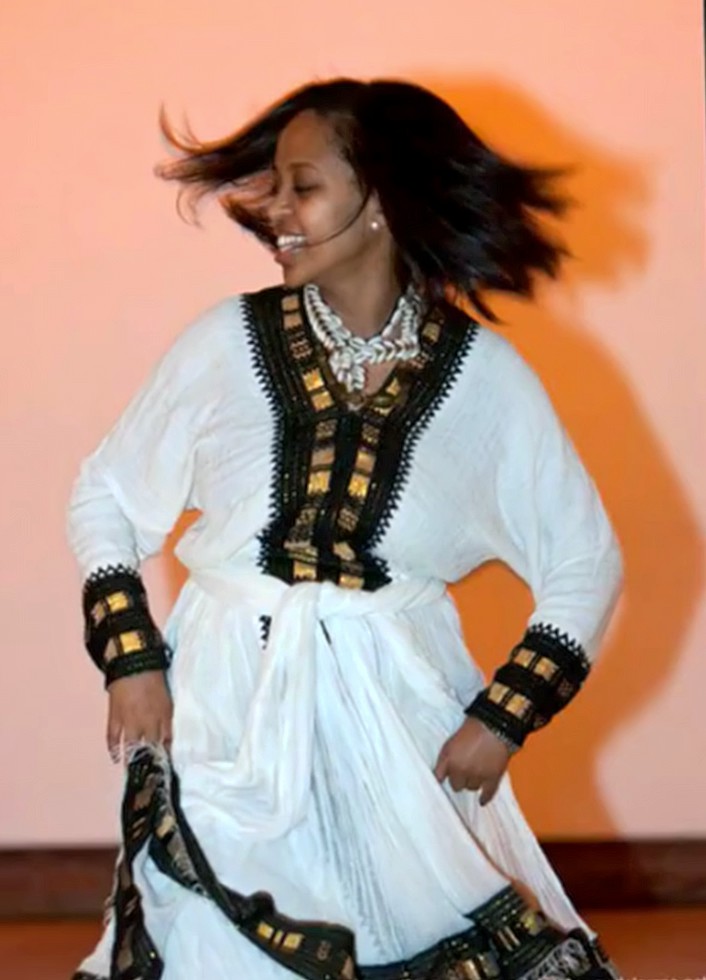Jailed in Ethiopia: 5 Nights in the ‘Bole Hilton’
Written by Nico Parco, June 22, 2017
I knew Luke for a short period during his stay in Ethiopia. Together we cleaned and equipped a few rock climbing routes near Addis Ababa. Luke set off in 2012 on a journey from London to Capetown on a 1924 Velocette motorcycle. He had already traveled over 8000 kilometers when he rolled into Addis Ababa. He had enough sense to bring his climbing shoes and harness, and as far as I can tell, the only thing that stood between Luke and some heroic first ascents on big basalt walls was destiny’s foolish femur bone.
It was 5 PM by the time the Ethiopian police put Luke behind bars in the Bole Jail, located in Addis Ababa’s southwest quadrant, and 24 hours since his last meal. Sleep deprived and hungry, at this point, any bed would suffice, even a prison cell floor wedged among 45 Ethiopians would do.
“You go to bathroom before door is lock. You must go. After lock, no outside,” the man sitting next to him said. Luke obeyed, peed, and slept.
The next morning, a cacophony of Amharic, Oromifa, and Arabic echoed off the pink walls of the large, cavernous room. The only window, whose bars were painted green, cast a thin layer of morning light over the cement floor. Two inmates erupted in a heated debate.
“They fight for 400 birr that disappear in the night,” his new friend told him.
Luckily, Aby had mastered Ethiopian high-school English, a dialect more sophisticated than the typical mister, where are you go? The two cycled through the endless selam variations that comprise the repetitive ritual of greeting and then sealed it with a firm handshake. Luke felt strange meeting the proverbial bunkmate.
“This is life in the can,” he thought. “Thank god I don’t have to sleep another night in here.”
Cell block one is divided into three areas: The ‘middle’ is where inmates sit, eat and socialize. Here a mountain of plastic containers for transferring the food delivered by the inmate’s family awaits the day’s activity. There are no meals in the Bole Jail, just donations from the outside.
In ‘toilet corner’ a yellow, 4-gallon bucket is the inmates’ only toilet during the 12-hour lock-in period between 630 pm and 630 am. The cell block’s ‘walls’ are lined by makeshift bedding, blankets and mattresses donated by inmate families. Here bodies line up like corpses in a mass grave to fall asleep among the flies and mosquitoes.
The only object in the large room was a tattered wicker broom used by a convict with no family who spends the day sweeping the cell. An African jail conjures up a dangerous and dreadful image, but the men living in cell block one value sanitation as much as the next. For his hard work and sweeping, inmates share injera and wot with the adopted janitor, and the floor shines in whatever way polished concrete can shine.
Suddenly, the cell door swung open and a guard entered the room and started counting heads. After the first head count, Luke and the inmates spilled onto the narrow sidewalk in front of the cell block for the second head count. The 150 half-naked, mostly shoeless prisoners were lined up in twos. The Christians wore wooden crosses around their necks, the Muslims wore beards and skirts and the hardened criminals, whether Christian or Muslim, were inked with Thug Life and 2Pac tattoos. All the men lived in one of three cell blocks depending on the severity of their accusation.
Two days before, Luke had struck a 16-year old girl crossing the road on his motorcycle. Her femur cracked in two, and he immediately carried her to a hospital and paid the bill. He didn’t mean to run her over, he didn’t leave the scene of the accident, and she was not using a crosswalk. Accidents are not usually crimes, but Ethiopian road rules hold the driver responsible for everything, even for a suicidal pedestrian. Motor accidents land you in cell block one with passport scammers and petty thieves where you’re guilty until proven innocent.
After the second roll call, the guards handcuffed Luke to a man with a monobrow tattoo that wore no shoes and led the couplet to a van. They were driven to the Bole Subcity courthouse where a judge sentenced Luke to pay the girl’s hospital bills and revealed he would have to spend another night in the Bole Jail.
When Luke returned to the cell block, Aby was waiting. The inmates were startled to see the 6-foot English-blooded farenji again. As Luke walked towards Cell Block One, an intrusive guard stopped him and ran his hands through Luke’s curly hair, “just to show off,” Luke said. Jailhouse power plays unfolded quickly, so he passed out his remaining cigarettes to make allies. In Bole Jail, inmates pay upwards of 10 birr for one cigarette, the price of an entire pack on the streets of Addis Ababa.
While they smoked a cigarette, Aby explained to Luke how the manager on a construction site framed him for theft. He’d been in the Bole Jail for 10 days. “You know there are three Boles: Bole Airport, Bole Medhane Alem (the Orthodox Church) and Bole Prison,” Aby explained. There’s a Bole for the rich, the devout and the wrongly accused.
Later that evening while Muslims prayed, inmates played cardboard checkers and a guard bolted the door shut. After lock-in, the night’s activities can get started. Every night, new inmates are forced to perform songs, dramas, jokes, and cultural dancing, veritable jailhouse vaudeville. Amusing performances and jokes about Eritrea, are rewarded with an orchestra of snapping, safely inaudible to the guards sleeping outside.
That night, two Oromo men performed a traditional song and dance that included lots of grunting and jumping in circles while swinging invisible spears and shields. A riveting performance to be sure. Luke waffled back and forth between wakefulness and sleep while fleas colonized his legs. Thanks to Aby’s pleas, the inmates excused him from the night’s playbill, making an exception for the farenji.
The next morning, Luke was in court again trying to see the sense behind the byzantine bureaucracy of an East African nation. A translator mendaciously whispered he would be free by the end of the day. Excited, Luke returned to cell block one to pack his mattress and say goodbye to Aby. He anxiously waited to hear the Boss call his name and end the farcical ordeal of life as a convict.
Outside of the three cell blocks, at the compound’s main entrance, each cell block’s Boss sits at the open-air window and announces the arrival of family and friends, which usually means the arrival of food and cigarettes. The corresponding Boss then collects a small tax on each delivery. Every meal must be opened and decanted first by the deliverer and then by the guard (and then by the Boss) before being scooped into one of the plastic containers that has been deemed harmless and impossible to cause injury in potential outbursts between inmates, no matter how well one handles his Tupperware.
Finally, Luke’s friend Jack came to the window. He carried bad news and some pizza. The judge set the Ethiopian bail bond at 15,000 birr (USD $700) and it had to be signed by an Ethiopian, preferably an Ethiopian government worker who makes more than 4000 birr a month, that itself, an anomaly.
Luke stared through the wood-framed window into the free world as the anchor of reality sank through his thoughts into his feet. He was going to be spending a third night in the ‘Bole Hilton’. Later that night, after guards turned the key on the padlock, and the sunset call to prayer was interrupted by a tinkle in the yellow bucket, Luke’s performance immunity ran out and the rest of cell block one’s inmates demanded the farenji perform. Lucky for Luke, he has great stage presence.
Some people say a man is made outta mud a poor man’s made outta muscle and blood, muscle and blood and skin and bones,a mind that’s a-weak and a back that’s a strong. You load sixteen tons and what do you get, another day older and deeper in debt. Saint Peter don’t you call me ‘cause I can’t go. I owe my soul to the company store.
As Luke belted the words to his delighted audience, sweat covered his face and nary a prison fly dared land on his sweltering skin. Luke did more than sing the words of a poor coal miner. For the first time in his life, he felt the blues. His performance proffered an immigrant’s resignation from an unfair system fed by racism and the whims of Africa big men. The emotional burden of being stuck in time sank deeper under sixteen tons of inaction. Ethiopian bureaucratic inaction where nothing happens without the approval of a superior and a stamp, who needs the approval of a superior and a stamp, who needs a superior and a stamp… A vortex of soft maybes orchestrated to drive you mad.
Instead of finger snaps, Luke’s performance evoked a rush of clapping, both a sign of appreciation and defiance to the same system of judges and police chiefs holding the 45 men in Cellblock One. These nightly programs not only provide comic relief but give inmates a way to emotionally connect their frustration, fear and discrimination despite cultural and religious differences.
On day four, Luke didn’t go to court and did not see a judge. His moods deepened and the hope for release slowly turned to misdirected fury and open mockery of the prison guards. His sorrow sank deeper when Jack again returned with more pizza and shared the disappointing news that the courts would be closed Thursday and Friday for regional meetings. Luke contemplated the days, hours, and minutes remaining in cell block one. The farenji lab rat was deep in authority’s maze, a place where dead ends and spirals reign.
I visited Luke right before the end of visiting hours at 5pm later that same day. A woman prison guard allowed all of us to stroll through the jail, pop into cell block one and talk to inmates. It was a ten minute tour, a mere one percent of Luke’s jail time daylight. Before leaving, we wrapped our arms around our friend Luke and said goodbye.
That same day, ten inmates—including the Boss—were released, either to the more permanent Kality Prison or turned over to the street to return to the corrugated sheet metal hovels from which they more than likely came. The room’s open space led to an immediate power struggle between the cell block two Boss (who hoped to move into cell block one) and the cell block’s next in charge. The two candidates then campaigned prison guards with bribes and savvy promises of future payments. One inmate suggested the entire cell block vote who would be their Boss, an idea met with interest but unfortunately not enough sticktuivitveness to execute. Finally, the winning personality of the candidate from Cell block One conquered the guards’ partiality and won the entitlement to skim taxes off the top of window-transactions, undoubtedly the most lucrative job on the inside of Bole Jail.
Once the padlock was locked, Luke took his regular place next to Aby, who told him that it was time for a Fly Out. A Fly Out is a spontaneous, un-orchestrated, completely chaotic attempt to kill, maim, hurt or at least discourage flies, gnats and mosquitoes dominating the cell block’s airspace. The band of inmates all stand up at once haphazardly swinging shirts, towels and shoes in the air; the very opposite of the calm, meditated fly-crunching technique made famous by Mr. Miagi and his chopsticks. For ten minutes, inmates harmonize thrashing, spasmodic waving and Harlem shaking chaos towards one goal. United, they hunt the flies, because in the flies’ eyes, men are equally delicious despite their crimes.
On day five, the guard counting heads saw Luke’s big, white feet sticking out of the end of his blanket and asked in Amharic: the farenji is still here, why? Nobody answered, and Luke remained sleeping despite roll call on the sidewalk outside, deliberately flaunting the rules. The same day, the guards led a ten-year old boy into cell block one, the youngest member of the Bole Jail Men’s Club. On the inside, the boy smoked cigarettes to appear tougher and older. After the guards shaved the child’s head, he earned the nickname tota, or monkey in Amharic. Luke learned that Tota had been caught red-handed pinching an iPhone from a farenji’s purse, so he imitated a pickpocket scene with the cell block bully meant to ridicule the boy’s criminal methods.
Laughing at Tota did nothing to relieve the pure boredom of Bole Jail. Even though Jack and more friends visited and delivered water and food, Luke was mired in apathy and listlessness. He whiled away most of the day in the corner reading the story of the American outdoorsman who spent five days trapped under a rock before cutting his arm off.
Another version of Prison
When my struggle feels most difficult, time swells, my agony expanding with it exponentially. I age faster, especially at night, when I lose the visual cues of time’s actual progression…I’ve fallen into a wormhole where I endure excruciating maltreatment for immeasurable eons only to return to normal consciousness… there is only one emotion in hell: unmitigated despair wrapped in abject loneliness.” ~ Aaron Ralston, Stuck between a Rock and a Hard Place
Luke was starting to relate. “But being trapped unjustly in jail is the work of man,” he thought. “Boulders are meant to fall, because boulders are prisoners of gravity. But humans make choices, and choices destabilize fate. A child walked into oncoming traffic, a family member called the police, and a judge made a decision. I’m a victim of randomness, not nature.”
On day six, Saturday, the least expected release day, a judge accepted a bail bond prepared by his friend Jack, and Luke was freed at a quarter to one. Back at cell block one, he hugged his bunkmate, translator, guide and friend, Aby, and walked out of the Bole Jailhouse to a round of applause. As Luke sailed through the exit, passing the cell block bosses, he thought: “In Africa, the irretrievability of time is only relevant to those who are counting.”
Nico Parco contributed this article as a guest writer for Ghion Journal of an experience he once had in Ethiopia. While the history and culture of Ethiopia is amazing, the caretakers of Ethiopia at the present moment leave much to be desired for. The record of human rights violations and violent repression by the TPLF government is abismal, this is but one example of the injustices that Ethiopians and non-Ethiopians alike are treated to by the TPLF government who are serving the bidding of their colonial masters. We at Ghion Journal thank Nico for his contribution, find out more about Nico and his writing by going to www.nicoparco.com.
Find out more about the repressive nature of the TPLF government and how injustices are interconnected globally by watching the Ghion Cast below.
Nico Parco
Latest posts by Nico Parco (see all)
- Chengue: 17 Years of Solitude - August 1, 2017
- Jailed in Ethiopia: 5 Nights in the ‘Bole Hilton’ - June 22, 2017





















Leave a Reply
Be the First to Comment!